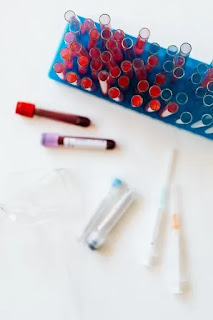Full Guide : All you need to know about how to donate blood
can smokers donate blood
It's a common misconception that smokers can't donate blood, but that's not actually true! While there are some restrictions in place, smokers are definitely allowed to donate blood. So if you're a smoker and you've been thinking about donating blood, read on to find out more.
can smokers donate blood
Yes, smokers can donate blood! In fact, according to the American Red Cross, about 38 percent of the population smokes, so smokers are a critical part of the blood donor pool.
Smokers should not hesitate to donate blood. The process is safe and easy, and it can help save lives.
How does smoking affect the body?
Smoking is one of the leading causes of preventable death in the world, and has a profound impact on the body. Smokers are more likely to develop a range of diseases and conditions, including cancer, heart disease, stroke, and emphysema.
Smoking also damages blood vessels, which can make it difficult for smokers to donate blood. When smokers do donate blood, their blood may be less effective in helping others.
Does smoking disqualify you from donating blood?
No, smoking does not disqualify you from donating blood. In fact, smokers are encouraged to donate blood.
Are there any exceptions to the rule?
Yes, there are exceptions to the rule. Smokers who have quit within the past 12 months may be able to donate blood.
How else can smokers help out?
Smokers can help out by donating blood. Donating blood is a great way to help others in need and it’s something that smokers can do to help make a difference.
What blood type cant donate plasma?
If you've ever been interested in donating plasma - which can help people with blood disorders - you might have wondered what blood type can't donate plasma. The answer is actually quite simple: people with Type AB blood can't donate plasma, because their bodies make antibodies that can attack the plasma of other people.
Who can donate plasma?
You may be able to donate plasma if you have a specific blood type. However, not all blood types can donate plasma. For example, people with blood type AB- positive can only donate plasma to people with blood type AB- positive.
Who cannot donate plasma?
There are a few groups of people who cannot donate plasma. These include:
-People with certain medical conditions: If you have HIV, hepatitis, or other infectious diseases, you cannot donate plasma.
-People with certain allergies: If you are allergic to certain proteins, you may not be able to donate plasma.
-Pregnant women: Pregnancy can cause changes in your blood that make it unsuitable for donation.
-People who have recently had surgery: Surgery can cause changes in your blood that make it unsuitable for donation.
Why is it important to donate plasma?
There are many reasons why it is important to donate plasma. Plasma is a vital component of blood that helps to sustain life. It is used in many medical treatments and can be used to save lives. When you donate plasma, you are helping to ensure that there is a supply of this vital resource available for those who need it.
What blood type cant donate plasma?
There are four main blood types: A, B, AB, and O. Out of these, people with type O blood are the only ones who can donate plasma. This is because plasma from type O donors can be transfused into people of any blood type. So, if you have type A, B, or AB blood, you unfortunately cannot donate plasma.
Can a person donate plasma if they are diabetic?
Many people with diabetes are able to lead normal, healthy lives by managing their condition with medication and lifestyle changes. Some people with diabetes may also choose to donate plasma. Plasma is a component of blood that can be donated safely, even by people with diabetes. Read on to learn more about plasma donation and diabetes.
Can diabetics donate plasma?
The American Red Cross states that people with diabetes can donate plasma as long as they are in good health and their diabetes is well controlled. The Red Cross website states that, "Donors with diabetes must have a blood sugar level below 200 mg/dL at the time of donation."
It is important for people with diabetes to maintain good control of their blood sugar levels, as high blood sugar levels can lead to serious health complications. If you are interested in donating plasma and have diabetes, be sure to speak with your healthcare provider to ensure that your diabetes is well-controlled before donation.
Where to donate plasma
If you are a diabetic, you may be wondering if you can donate plasma. The answer is yes! You can donate plasma if you have diabetes. In fact, plasma donation is a great way to help others while also helping yourself. Plasma donation can help improve your health by reducing your risk of developing certain conditions, such as heart disease and stroke. Additionally, donating plasma can also help you manage your diabetes by providing you with a free source of insulin.
Can you still donate plasma if you are anemic?
Plasma is a component of your blood that helps to clot wounds and fight infections. If you have ever donated blood, you were likely asked if you wanted to donate plasma as well. But what if you are anemic? Can you still donate plasma?
What is anemia?
Anemia is a condition in which the blood lacks sufficient healthy red blood cells. Red blood cells carry oxygen to the body's tissues. There are many different types of anemia, each with its own cause. Anemia can be temporary or long term. It can occur in people of all ages, but is most common in children and women. Anemia can cause fatigue, pale skin, fast heartbeat, and shortness of breath.
There are many different causes of anemia, including:
- Blood loss: This can be due to heavy menstrual periods, surgery, or injury.
- Diet: A diet lacking in iron, folate, or vitamin B12 can lead to anemia.
- Inherited conditions: Some people are born with genes that make them more likely to develop anemia.
- Chronic diseases: Diseases such as cancer, kidney disease, or rheumatoid arthritis can cause anemia. Certain medications: Chemotherapy drugs and some heartburn medications can lead to anemia.
If you have any of these risk factors for developing anemia, you may be wondering if you can still donate plasma. The answer is yes! You can
What causes anemia?
There are many different causes of anemia, but the most common cause is iron deficiency. Iron is necessary for the production of hemoglobin, which is what gives blood its red color. Without enough iron, the body can't produce enough hemoglobin, and the blood becomes anemic. Other causes of anemia include blood loss, problems with the bone marrow (where new blood cells are made), and certain chronic diseases.
How does anemia affect plasma donation?
If you are anemic, you may not be able to donate plasma. The reason for this is that anemia can cause low blood pressure, which can be dangerous for the person donating plasma. Additionally, anemia can cause dizziness and fainting, which can also be dangerous for the person donating plasma. If you are interested in donating plasma, it is best to speak with a medical professional to see if it is safe for you to do so.
Are there any risks associated with plasma donation for people with anemia?
There are a few potential risks associated with plasma donation for people with anemia. First, there is a small risk of developing a blood clot during or after the donation process. Second, there is a slightly increased risk of developing an infection at the site of the needle puncture. Finally, there is a very small risk of developing a serious complication called transfusion-related acute lung injury (TRALI). TRALI is a rare but potentially life-threatening condition that can occur when the donated plasma contains antibodies that attack the recipient's lungs.








